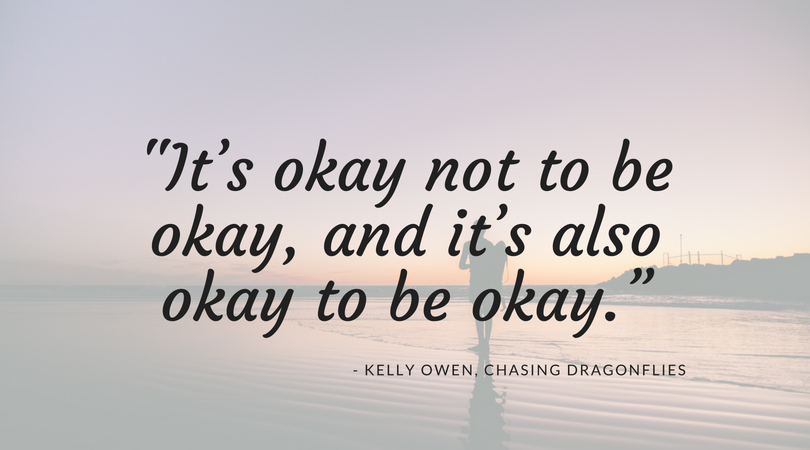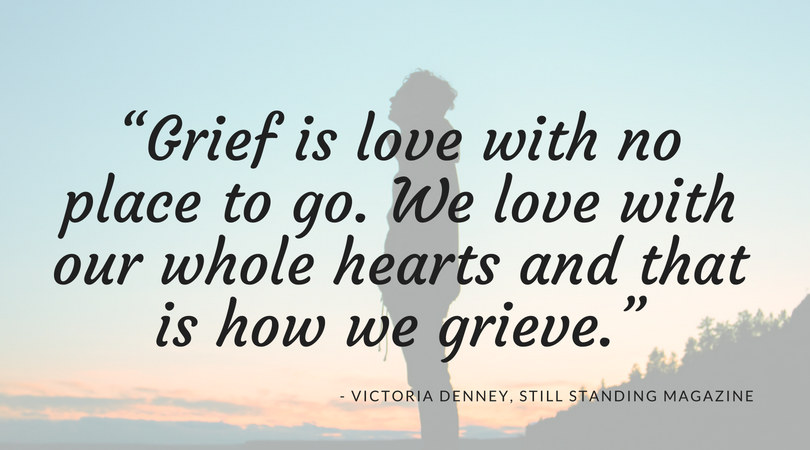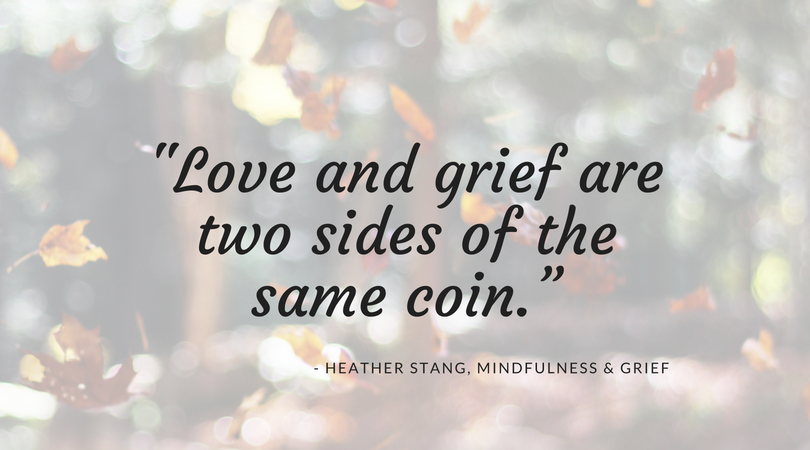
How to be there for someone who is grieving
Posted by AK Lander | On June 27, 2018 14:37
We reached out to a range of grief writers to find out about their experiences when it comes to supporting someone who is grieving.
It’s never easy losing a loved one, and without the support of those closest to us, getting over grief seems somewhat impossible. But how can you be there for someone else who is grieving? How can you return the favour and help them through it?
Try not to compare your experiences
“After my son died, hearing things like ‘everything happens for a reason’ felt like a knife to my already bleeding heart,” says Victoria Denney, writer for Still Standing Magazine. “Hearing others try and relate by comparing their own grief at their dog dying or their parents’ divorce only made me resent the one trying to make these comparisons.”
Heather Stang, grief coach and author of ‘Mindfulness & Grief’ often hears this from her clients too. “’At least he is no longer suffering’ or ‘she is in a better place,’ for many people will feel trite and untrue. Some people will find those phrases comforting. Rather than risk causing more pain, the best we can do is listen to our bereaved friend, or simply sit with them in silence instead of trying to fix the unfixable.”
Heather also suggests offering help in a more proactive way. “Instead of asking them what they need, offer specific help with a timestamp. “I am going to the supermarket around 6pm. What can I bring you for dinner?” “I would love to come mow your lawn on Saturday, is 10am good for you?” “Can I pick up the kids from school for you on Wednesday?” “May I drive you to your next dentist appointment?” These small kindnesses can make a big difference.”

There is no right or wrong way for someone to grieve
Kelly Owen, author and blogger of Chasing Dragonflies, says that everyone grieves differently. “Someone can be as devastated over the loss of a spouse or a pet. It’s the loss of that relationship that is the grief and it’s important not to judge anyone’s way of grieving or how long they take to mourn. Some people adjust to life relatively quickly after a loss, others never seem to reach a point of acceptance. It’s okay not to be okay, and it’s also okay to be okay!”
Kelly also believes there is no right or wrong way to help someone grieving, but the worst thing to do is ignore the bereaved. “It can be hard to know what to say and you might feel awkward, but it’s important that you let the person know you are there for them or are thinking of them.”
“Another thing to avoid,” says Heather, “are suggestions that send a signal to the bereaved person that we are not comfortable with their pain. ‘Just stay busy.’ ‘Try to take your mind off of it.’ We might as well say ‘stop feeling how you’re feeling and get over it already’ which would be unhelpful and unkind.”
Make sure they are looking after their wellbeing
“There are three important things we can do to help ourselves in the early days of grief: sleep, nutrition, and movement,” says Heather.
“The first is make sure they get the right amount of sleep. This can also be the most challenging, but there are many relaxation practices, such as yoga nidra, meditation for insomnia, and progressive muscle relaxation, that can help your loved one get some shut eye.
“Grief is a stress response, and stress craves fat, salt and sugar. Make sure your loved one is eating some healthy, whole foods and drinking plenty of water while limiting alcohol intake.
“We often forget that grief impacts our physical body. Whether your loved one chooses to walk around the neighbourhood, take a yoga class, or do what I did and hit tennis balls against a wall, they should be moving their body for at least a half an hour a day. This will help release physical tension and mental distress.”

You don’t have to have experienced grief yourself
Not having experienced grief yourself can make you feel pretty useless when trying to support someone else, but Kelly disagrees. “Even if you have no personal experience of loss yourself, you can still be a valuable source of comfort for the bereaved. As each loss is different, it’s important to give the bereaved time and space to talk at length about their loss – if they want to.”
If anything, Kelly thinks it can be a positive that you may not have experienced grief yourself. “Talking to an impartial friend can really help with this as there is no ‘me too’ scenarios that will take over the conversation.”
Sometimes you don’t have to say anything
When someone is grieving, all you want is to be able to say something that will take that person’s pain away. But it’s not always that simple – you may not know them very well, you may feel awkward, or you just can’t find the right words to say.
Victoria says that support doesn’t have to be verbal. “Just having someone give you a hug, a real ‘hold you so tight that you are able to surrender your pain for a minute or two’ hug is one of the best ways to help.
“Simply offering a shoulder to cry on and being the one that can sit and just listen or be there with them in silence without trying to offer advice or flowery words is the best gift.”

You can’t take away someone’s grief
As much as we’d love to, we can never fully ‘heal’ someone of their grief, no matter how hard we try.
“Grief is an ongoing process” says Victoria. “You will not magically wake up one day and ‘be over it’. Each day, month, and year the grief changes.”
Although you can be a support system for someone who is grieving, Victoria explains that the grief will never really go away, no matter how long it’s been. “Don’t worry if it’s been 20 years and your friend still cries when they hear a certain song on the radio or they catch a glimpse of someone that reminds them of the one they lost.
“Grief is love with no place to go. We love with our whole hearts and that is how we grieve.”
Heather appreciates that it is hard to support someone without trying to ‘fix’ them. “Tending to a grieving friend without trying to fix their pain can feel uncomfortable to us. It is natural to want to ease their suffering. But remember that love and grief are two sides of the same coin. Resist the urge to change how they are feeling, and instead honour how they are feeling by being a kind, compassionate witness.”
For more information about our bespoke headstones, memorials and renovation services, contact us today and we will be more than happy to help.
